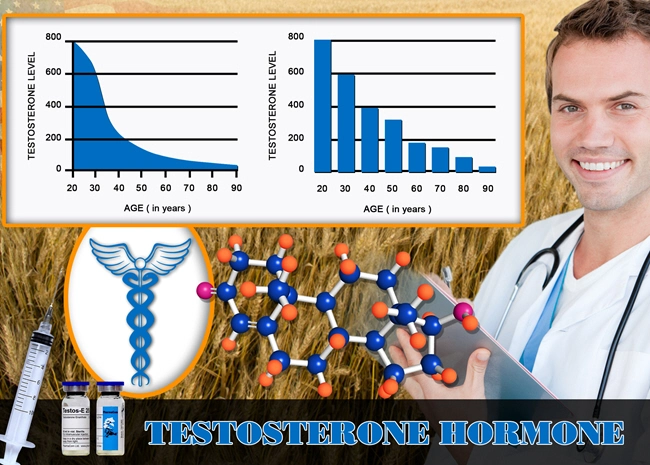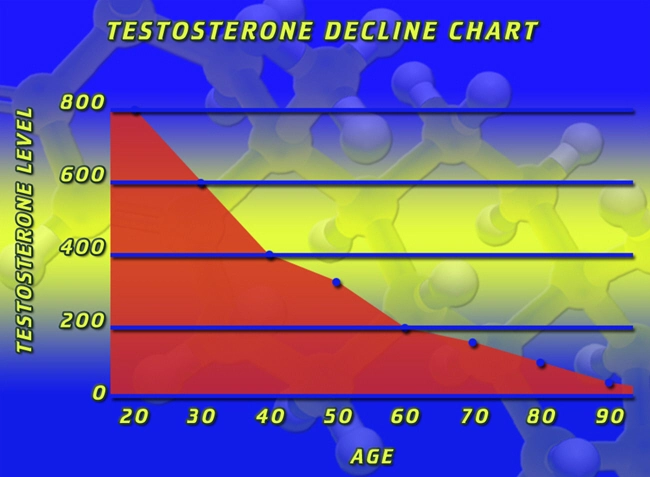
Video Link: https://vimeo.com/286619857
Video Download: Click Here To Download Video
Video Stream: Click Here To Stream Video
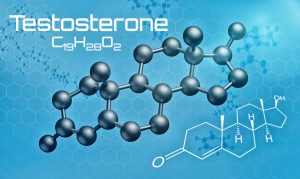
A recent study has linked high levels of testosterone to slowing aging by protecting the length of telomeres. The study was conducted by the University of Western Australia and consisted of almost 3,000 men between the ages of 70 and 89.
The study measured testosterone and estradiol blood levels. Testosterone is converted to estradiol and elevated levels of estradiol have been linked to longer telomeres, and telomeres play a significant role in the aging process.
The lead researcher of the study, Professor Bu Yeap from the UWA Medical School stated that the study found a link between heightened estradiol levels and longer telomeres which slows aging.
"The research suggests higher testosterone levels in older men, which is then converted to estradiol, might sustain youthfulness," Professor Yeap said.
"We know from the study that testosterone, estradiol, and telomeres are linked, however further research is needed to explore how this relationship works.
"Testosterone is converted to estradiol but it's still unclear what determines the level of production."
Professor Yeap said other factors should also be considered in estradiol levels such as physical activity and body composition.
The conclusion of this study is an exciting development in the longevity field since telomeres play a crucial role in slowing aging. Here is a detailed look at telomeres.
Telomeres: The Overlooked Key to Solving the Puzzle of Aging
Telomeres. Until recently, this word was seldom mentioned in anti-aging circles.
Research scientists have been aware of telomeres since the 1930s when DNA researchers determined that telomeres played a role in stabilizing the ends of chromosomes.
However, it was not until the early 1980s that more information was uncovered and the anatomy and functions of telomeres became well-known.
But the role this fascinating substance plays in the battle against aging and other severe diseases was still not recognized. Recent research, however, has changed the entire equation, and the importance of telomeres is now finally realized.
What are Telomeres?
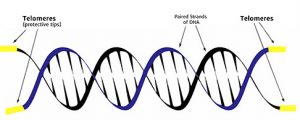
Telomeres are the caps at the end of our DNA strands. As mentioned earlier, they protect our DNA by adding stability. They act as boundaries between chromosomes. Without telomeres, our chromosomes would attach to each other, which would cause their structures to change. This would result in a broad range of health problems: inflammation, cancer, and aging.
Telomeres are named from a combination of two Greek words: telos (Greek for “end”) and meros (Greek for “part”).
Here’s an excellent way to understand their function. Think of the plastic ends of your shoelaces. They protect your laces and prevent them from fraying and falling apart. But eventually, with enough use, they wear out. When this happens, it’s time for new shoelaces.
Telomeres play a role similar to those plastic ends of your shoelaces. To keep us healthy, our cells must refill by making copies of themselves by dividing. The problem is that every species, including humans, has a finite number of cell divisions. When they reach the end, so do we.
With each division, our telomeres shorten. When telomeres stop protecting our cells, the door is open for cancer, inflammation, and, accelerated aging.
The Good News and the Bad News
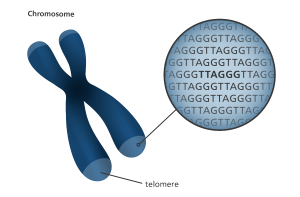
Hopefully, you can now realize the crucial importance of telomeres. When they become worn out and frayed, they send signals to the cells to stop dividing.
This causes our tissues to have a harder time regenerating. The result is an increase in age-related diseases.
Therefore, the key to good health and longevity is to protect our precious telomeres. The good news is that our lifestyles can play a massive role in the health of our telomeres, both good and bad.
Numerous studies have concluded that oxidative stress -- a build-up of dangerous molecules called free radicals -- can speed up telomere shrinkage. As damage increases, telomeres are no longer able to carry out their protective role.
So How Can I Protect my Telomeres?
Fortunately, there are some steps you can take to guard your telomeres against oxidative stress, thus allowing them to do their critical work.
Here are some proven ideas that you can start doing immediately:
- Get moving. Exercise and physical fitness are at the top of the list. Several studies have confirmed that exercise can keep your cells young, boost your oxygen capacity, reduce stress, improve circulation, help you get regular deep, restorative sleep, and lengthen your telomeres.
- Control stress. This is every bit as important as regular exercise. Meditation, prayer, yoga, tai chi, chi kung, nutritional supplements (phosphatidylserine, L-Theanine, Gamma-aminobutyric acid (GABA), Magnesium, Valerian Root, Melatonin, Kava, Lemon Balm, and B vitamins), and adequate sleep are the foundations that help you deal with this potential killer. A small amount of stress is healthy. But left unchecked, stress can spread like wildfire in your brain and body -- with devastating consequences. Controlling stress is crucial. Don’t neglect to address this vital step.
- Eat smart. Load up on fresh fruits and vegetables. They are jam-packed with antioxidants that will help your telomeres battle the effects of free radicals. Lean protein, a good multi-vitamin, healthy fats (olive oil, walnuts, almonds), green tea, and staying hydrated by drinking adequate amounts of water will round out a good nutritional foundation. This also means being strict and disciplined about nutritionally useless “junk foods” and processed foods. They are loaded with all types of toxic chemicals, sugar, and preservatives that are designed to maximize the profits of the big food companies -- not your health. Be tough.
- Avoid the “super no-no’s.” Smoking, sodas, street drugs, and excess alcohol consumption are excellent ways to shorten your telomeres...and die years or even decades before your time. Enough said.
- Consider Human Growth Hormone (HGH) Replacement Therapy. In a recent study at the University Hospital La Paz in Madrid, Spain, Dr. Gomez-Garcia and fellow researchers concluded that HGH boosted the enzyme telomerase. This enzyme plays a role in capping telomeres, thus preventing them from shrinking and allows them to continue their mission of repairing our DNA. High growth hormone levels have a definite correlation with telomere length.
The Choice is Yours

No question about it. More research scientists and medical professionals are finally recognizing that aging is a disease, and they are devoting more time and effort to understand it, slow it down, stop it, and eventually reverse it.
The cost of medical care in the United States is spiraling out of control at a frightening pace. If it is not reigned in, our country will eventually go bankrupt as a result of increasing lifespans due to medical technology but not comparable increasing health spans.
This means that we are living longer but not healthier. Our life quantity is growing, but our life quality is suffering as a direct result of aging!
And this is far from a uniquely American problem. This applies to virtually every other nation in the world as well. In short, something has to be done to stop this monster.
We may be on the verge of enormous breakthroughs in the field of anti-aging and life extension.
Regrettably, however, the odds are that these earth-shaking developments will not occur overnight. We could be years and even decades away from finally uncovering aging's deepest secrets.
Therefore, to stay around long enough to reap the benefits of anti-aging developments, the time to protect your telomeres is now.
Contact our clinic for the latest anti-aging developments.
Reference
The biology of aging: 1985–2010 and beyond
Contact Us Today For A Free Consultation
Dear Patient,
Once you have completing the above contact form, for security purposes and confirmation, please confirm your information by calling us.
Please call now: 1-800-380-5339.
Welcoming You To Our Clinic, Professor Tom Henderson.

- Finally! A Safe, Effective and Easy Way to Slow Aging: Genotropin HGH Product [Last Updated On: February 17th, 2025] [Originally Added On: June 24th, 2020]
- Metformin: The First Effective Anti-Aging Drug? [Last Updated On: February 16th, 2025] [Originally Added On: June 29th, 2020]
- A new study says Human Growth Hormone (HGH) can reverse aging! [Last Updated On: October 13th, 2024] [Originally Added On: June 30th, 2020]
- What Metabolism Reveals About Aging and Mortality [Last Updated On: February 17th, 2025] [Originally Added On: December 1st, 2020]
- Stanford University: A Way to Reverse Age-Related Health Issues is a Real Possibility [Last Updated On: July 14th, 2024] [Originally Added On: February 4th, 2021]
- The Six Biggest Hormone Disruptors to Avoid [Last Updated On: September 7th, 2024] [Originally Added On: May 16th, 2021]
- Laugh It Up! Boost Your HGH FAST [Last Updated On: July 13th, 2024] [Originally Added On: June 7th, 2021]
- Why Poor Sleep Quality is a Serious Detriment to Your Health [Last Updated On: September 5th, 2024] [Originally Added On: June 12th, 2021]
- Scientists Bold Prediction: We'll Soon Extend Life Well Beyond 120” [Last Updated On: June 23rd, 2024] [Originally Added On: August 24th, 2021]
- Can My Hormones Make Me Fat? [Last Updated On: July 12th, 2024] [Originally Added On: September 1st, 2021]
- Minoxidil: A potential cure for baldness? [Last Updated On: October 7th, 2024] [Originally Added On: November 16th, 2022]
- The Quest for the Secret of Longevity [Last Updated On: August 30th, 2024] [Originally Added On: November 24th, 2022]
- Jeff Bezos Wants to Stop Aging! [Last Updated On: September 2nd, 2024] [Originally Added On: November 24th, 2022]
- Is it possible to live to 180? Perhaps! [Last Updated On: October 19th, 2024] [Originally Added On: November 29th, 2022]

